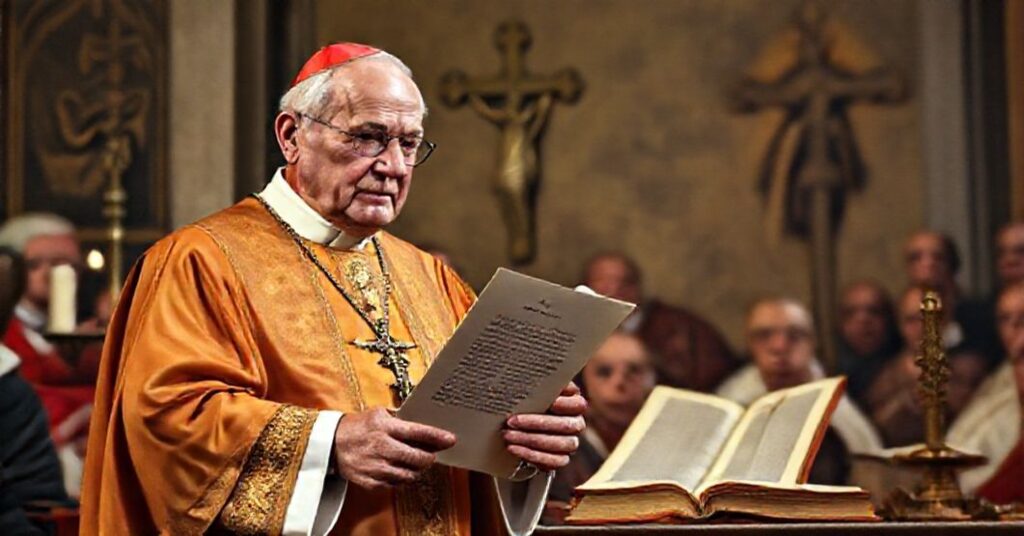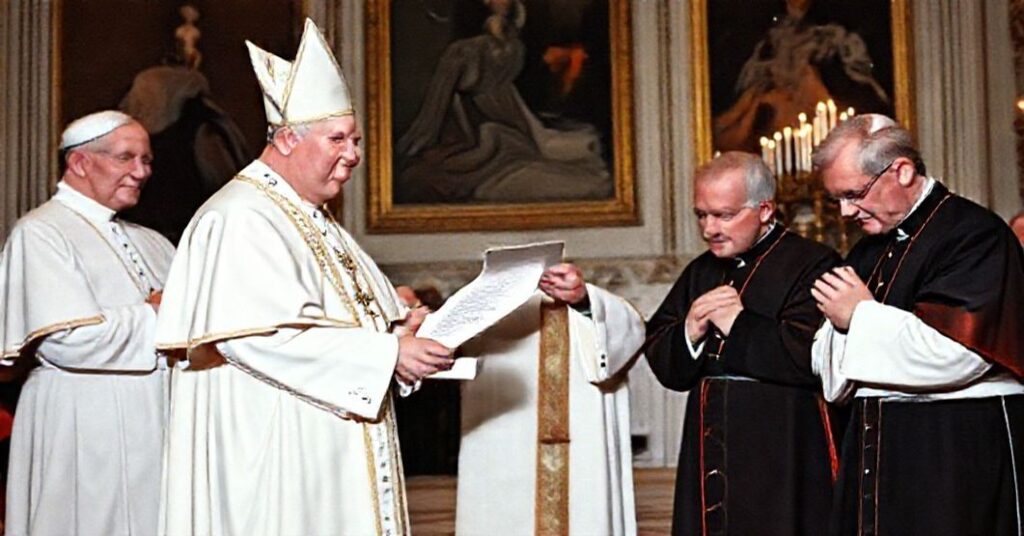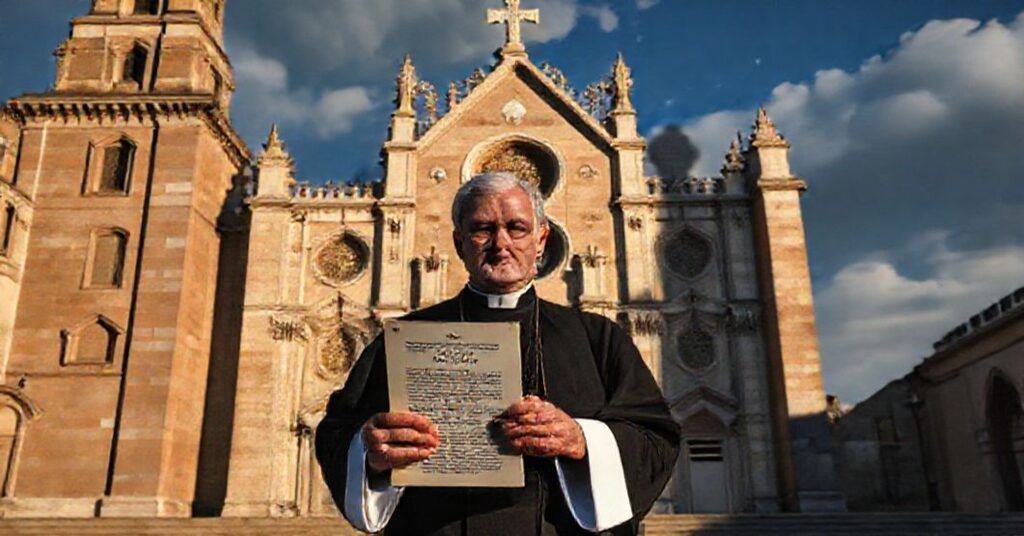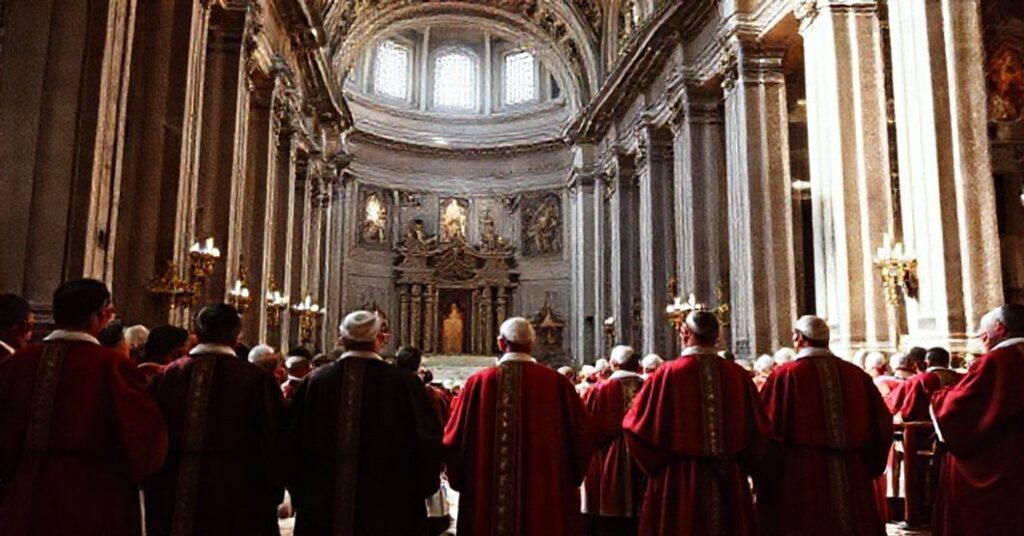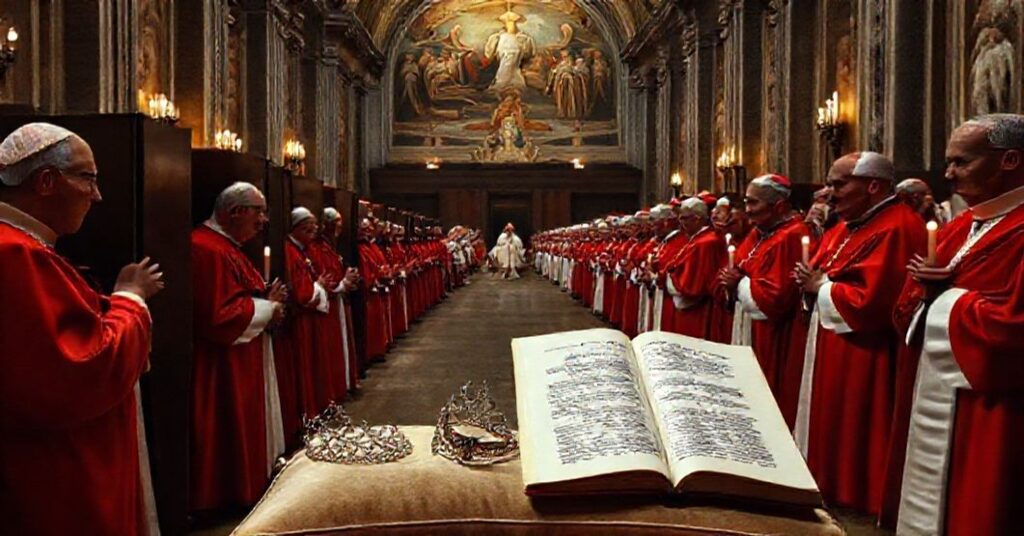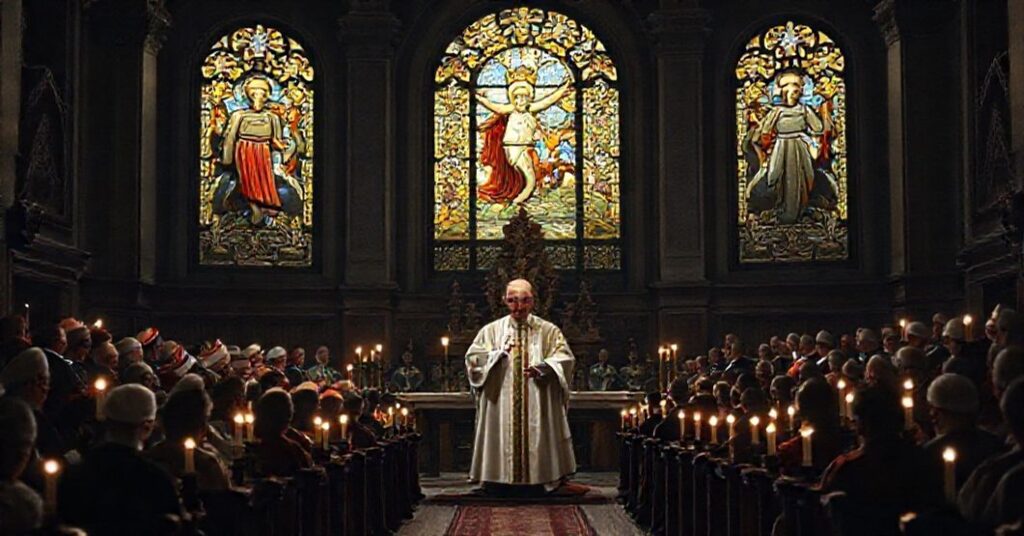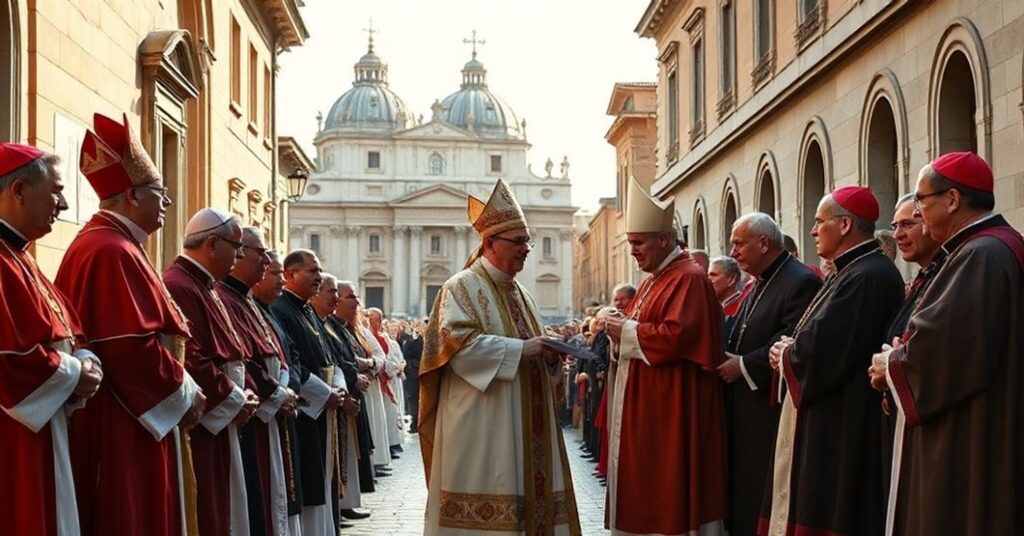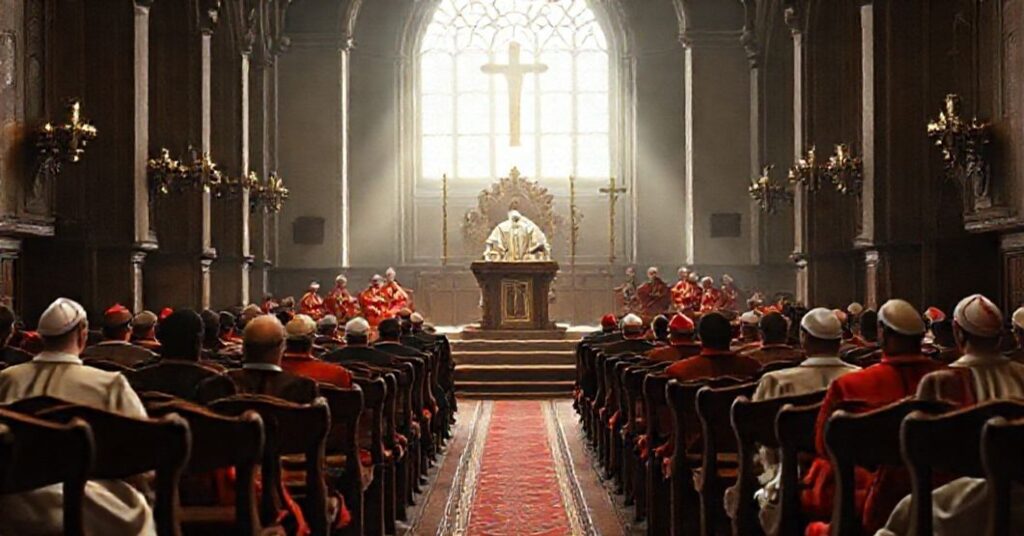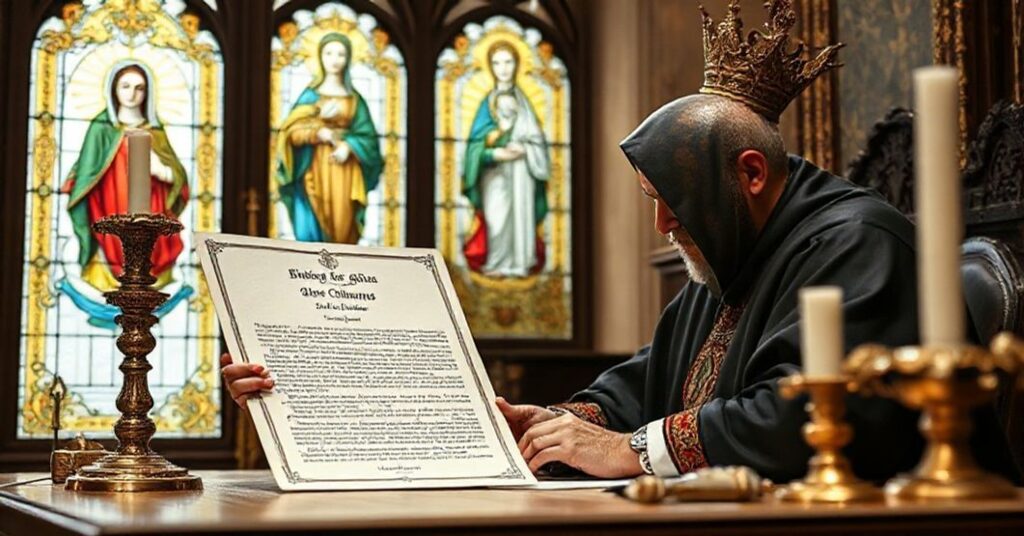Ioannes Roncalli, known as John XXIII, in this motu proprio “Appropinquante Concilio” of 6 August 1962, lays down the juridical and procedural norms for the forthcoming Second Vatican Council: he exults over the “admirable spectacle” of a worldwide episcopate gathering around him, invokes an undefined hope of “fruits” for the Church and the world, and then promulgates a meticulously bureaucratic “Ordo” regulating participants, commissions, observers, voting procedures, secrecy, languages, dress, and ceremonies. The entire text enthrones a humanly fabricated council-assembly around a modernist usurper as the operative center of doctrine, discipline, and “renewal,” while studiously omitting any clear affirmation of the immutable, exclusive sovereignty of Christ the King, the necessity of condemning errors, and the obligation to defend the faith against the very principles this council was convened to embrace; this is not preparation for a Catholic council, but the constitutional charter of a conciliar revolution.

